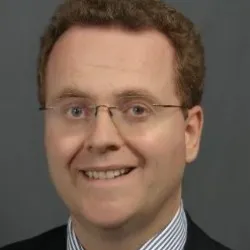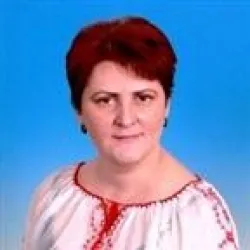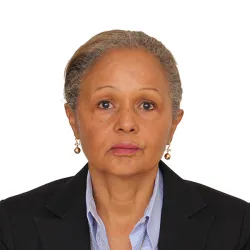2021 Central Bank Board: Good Governance, Resilience and Strengthening Independence
Central Bank Board: Good Governance, Resilience and Strengthening Independence
Central Bank Board: Good Governance, Resilience and Strengthening Independence
September 13 - 16
Chair: John Jussup, former General Counsel and Corporate Secretary, Bank of Canada
- What are the key attributes of effective leadership in a modern central bank?
- Why is diversity, inclusion and equality important for central banks mandates and leadership?
- How can central bank leaders ensure their institutions become more resilient against internal threats and external disruptions?
- And what support and contribution should executive and oversight boards be ready to deliver in this regard?
In 2021, central banks thought their agendas would be shaped by two global forces: technological innovation and environmental and social governance (ESG) objectives. In both instances, central bankers increasingly recognise the role of their institutions as leaders and exemplars, both at home and on the international stage. Yet they must also prepare to tackle market disruptions and the threats of increasing geopolitical and financial instability in which we have now seen in 2020- 2021 due to Covid-19. In this challenging environment, central bank leaders need to be able to incorporate an understanding of diversity, fintech and climate risk into their existing mandate portfolio, while effectively maintaining and upholding the hard-won reputation and independence of central banks.
This course, “Central Bank Board: Good Governance, Resilience and Strengthening Independence” is designed to equip central banker leaders to meet these challenges.
Timings: 8am-12pm (ET) | 1pm-5pm (BST) | 8pm-12am (SGT)
Course agenda
Two weeks prior to your training course you will be emailed access to our content hub with course materials, including a trial to Central Banking if you are not already subscribed. There will be a combination of articles, reports and presentations that will contribute to two hours of preparation time for the live content. Presentations for the sessions will also be held here subject to the speaker approval.
13:00 – 13:15
Course introduction
Course introduction session led by the chair
06:00 - 06:15
- Introductions and welcome from the chairperson
- Overview of the training course
- Discussion of the delegate expectations
13:15 – 14:15
Maintaining central bank independence
11:00 - 12:00
- Key challenges to central bank independence in 2021
- Role and responsibilities of the board in safeguarding independence
- Examples of legal and governance measures available and effected
- Discussion: accountability and central bank independence as mutual enablers
John Jussup was general counsel and secretary of the Bank of Canada, from 2009 until July 2012. Prior to joining the central bank, he was senior vice-president, chief legal officer & secretary of Cognos Inc., one of Canada’s leading software companies, from 1993 until its acquisition by IBM in 2008. Before joining Cognos, Mr Jussup held increasingly senior in-house counsel and secretarial positions in the mining, medical diagnostics and finance industries. He graduated from the Royal Military College of Canada and from Queen’s University, in Kingston, Canada (LLB). He was called to the Ontario Bar in 1979. He was a recipient of the Canadian General Counsel of the Year Award in 2005 in recognition of his achievements corporate governance. He currently sits on a number of boards and consults in the areas of in corporate secretarial and in-house legal practice.
14:15 – 14:30
Break
12:00 - 12:45
14:30 – 15:30
Digital money issuance, policy and regulation: where do central banks stand?
13:30 - 14:30
- Taxonomy of digital money: CBDCs, wholesale digital tokens, stablecoins and crypto assets
- Implications for central banks: policies, roles and responsibilities
- Overview of key financial, operations and regulatory risks
- Discussion: how to educate markets, players and the public?
Thomas Moser is Alternate Member of the Governing Board of the Swiss National Bank. He is also a member of the Managing Committee of the Swiss Institute of Banking and Finance at the University of St. Gallen and a member of the Board of Directors of Orell Füssli Holding Ltd. From 2006 to 2009 he was Executive Director at the International Monetary Fund (IMF) in Washington, D.C., USA. Thomas Moser holds a MA and a doctorate in Economics from the University of Zurich.
15:30 – 16:00
16:00 – 17:00
Financial strength: what does it mean for central banks – and how to achieve it
16:00 - 17:00
- Role of accounting in maintaining central banking independence
- What does “financial strength” mean in central banking contexts?
- Implications for the relationship with the public and stakeholders
- Discussion: how to determine the appropriate level of financial resources needed for central banks to perform their functions?
Robin Darbyshire is a chartered accountant who has worked, as an independent consultant for 10 years, mainly on central bank issues. He has undertaken a number of projects for the International Monetary Fund, including implementation of International Financial Reporting Standards (IFRS) in central banks. He has also worked on a payments system at a middle eastern central bank. Previously he spent 19 years with the Bank of England, for 17 of which he was responsible for the Bank’s accounts. He was a founder member of the committee that devised the accounting framework and policies for the European System of Central Banks and has recently undertaken projects for the European Central Bank related to Eurosystem accounting. He has written a number of articles on issues in central bank accounting and regularly speaks at conferences on central bank finances.
13:00 – 14:00
Reporting lines and the role of the secretary of the board
13:30 - 14:30
- Examples of frameworks for organising priorities and activities of the board
- Role of the secretary of the board in managing information flow and interdepartmental communication
- Building blocks of effective reporting lines and processes
- Discussion: what is expected of the board secretary in delegates’ home organisations?
John Jussup was general counsel and secretary of the Bank of Canada, from 2009 until July 2012. Prior to joining the central bank, he was senior vice-president, chief legal officer & secretary of Cognos Inc., one of Canada’s leading software companies, from 1993 until its acquisition by IBM in 2008. Before joining Cognos, Mr Jussup held increasingly senior in-house counsel and secretarial positions in the mining, medical diagnostics and finance industries. He graduated from the Royal Military College of Canada and from Queen’ University, in Kingston, Canada (LLB). He was called to the Ontario Bar in 1979. He was a recipient of the Canadian General Counsel of the Year Award in 2005 in recognition of his achievements corporate governance. He currently sits on a number of boards and consults in the areas of in corporate secretarial and in-house legal practice.
14:00 – 14:15
Break
14:00 - 14:15
14:15 – 15:15
Transparency in decision making
12:15 - 13:15
- Why is transparency in decision making important?
- How is transparency in decisions making different when shared with government and regulatory bodies?
- How can central banks ensure that decisions do not threaten central bank independence?
- Techniques to shape perception internally and externally and contribute to transparency
Mirela Roman
Strategy advisor to the board (external communication and public relations)
National Bank of Romania
Following the graduation IT College and the Academy of Economic Studies in Bucharest, Mirela Roman joined the Monetary Policy Department of the National Bank of Romania for almost three years up to 1994 when switched to gain almost 12 years of valuable experience as an economics correspondent at Reuters News Agency, working in Bucharest, London, Prague, Warsaw or Copenhagen. In 2005 she rejoined NBR as an Adviser to the Governor and has run a newly created Communication Department for eight years before taking a new challenge: the strategy path. Economic analysis, news coverage, project development and team coordination defined her business for years, while her focus was growing with memberships in the local Foreign Press Association, the Romanian-Chinese Association, the Club of Rome Romanian arm, Ethics Board of the ICCO-Affiliated Romanian Association of Public Relations as well as a lecturer in Winsor or Cambridge training series by Central Banking Publications for a decade now.
15:15 – 15:30
Break
15:15 - 15:30
15:30 – 16:30
The role of the secretary of the board: wrap up and Q&A
An opportunity for questions and discussion of John's presentations
11:00 - 12:00
John Jussup was general counsel and secretary of the Bank of Canada, from 2009 until July 2012. Prior to joining the central bank, he was senior vice-president, chief legal officer & secretary of Cognos Inc., one of Canada’s leading software companies, from 1993 until its acquisition by IBM in 2008. Before joining Cognos, Mr Jussup held increasingly senior in-house counsel and secretarial positions in the mining, medical diagnostics and finance industries. He graduated from the Royal Military College of Canada and from Queen’ University, in Kingston, Canada (LLB). He was called to the Ontario Bar in 1979. He was a recipient of the Canadian General Counsel of the Year Award in 2005 in recognition of his achievements corporate governance. He currently sits on a number of boards and consults in the areas of in corporate secretarial and in-house legal practice.
13:00 – 14:00
Good governance: the role of diversity and inclusion
12:15 - 13:15
- Diversity and inclusive culture as building blocks of good governance frameworks
- Implications for corporate services and the human resources function
- Examples of projects and initiatives focused on integration of under-represented groups
- Discussion: what should the board do to lead by example?
14:00 – 14:15
Break
12:45 - 13:00
14:15 – 15:15
Understanding and overseeing central bank performance
12:15 - 13:15
- What different types of performance can be measured?
- How can central banks use internal control mechanisms to monitor performance of structures, departments and individuals?
- What is the motive for this measurement?
- How does measuring performance link to the role of the board in strategic planning and communication?
Sheila Mmbijjewe MBS, ACCA (UK) was appointed Deputy Governor of the Central Bank of Kenya with effect from 19th June, 2015. She holds a BA in Accounts and Finance and is a Chartered Accountant England and Wales.
Sheila was the first woman in Kenya to be appointed as an executive director of a publicly quoted commercial bank. She has worked in the commercial banking sector in Kenya, the Monetary Policy Committee of the Central Bank of Kenya, the Financial Reporting Centre of Kenya, Pricewaterhouse Kenya and Deloitte Touché Kenya. More recently Sheila became the first Kenyan woman to be appointed to the Board of a large international publically quoted company.
Sheila was a founding member of the Monetary Policy Committee in Kenya and the Crime and Anti- Money Laundering Act Advisory Committee of Kenya. She has been a director of the Capital Markets of Kenya, the Disclosure Committee of the Capital Markets in Kenya and the Information and Technology Committee of the Nairobi Stock Exchange, Old Mutual Insurance Company Kenya amongst others.
In 2008 she was awarded the Moran of the Burning Spear (MBS), a presidential medal for service to her country.
15:15 – 15:30
Break
15:15 - 15:30
15:30 – 16:30
Overseeing innovation: how accountable are central banks for driving change?
13:30 - 14:30
- How central banks can change to better appreciate and utilise innovation
- Ensuring inclusive innovation: the central bank as a catalyst
- Hubs, Sandboxes and incubators: use, funding and outputs
- Case study: disruptive innovation in central bank and financial sectors
Marius Jurgilas has brought his experience in both academia and government to the important role of Member of the Board of the Bank of Lithuania with responsibility for supervisio, payment systems and research. During his tenur Lithuania emerged as a top jurisidiction for fintech companies witin the EU under the leadership of the Bank of Lithuania, forging Mr Jurgilas' reputation as a leading European thinker on the future of banking.
13:00 – 14:00
FinTech and innovation: what board members need to know
11:00 - 12:00
- What is the impact of technology on the oversight framework?
- How can fintech and innovation improve central bank operations?
- Why is financial inclusion important when considering fintech and innovation?
- Examples of central bank use cases
Douglas W. Arner is the Kerry Holdings Professor in Law, RGC Senior Fellow in Digital Finance and Sustainable Development and Associate Director of the HKU-Standard Chartered Foundation FinTech Academy at the University of Hong Kong. In addition, he is Associate Dean (Taught Postgraduate and Development) of the Faculty of Law at HKU and co-founder and former Director of HKU’s Asian Institute of International Financial Law, as well as Faculty Director and co-founder of the LLM in Compliance and Regulation, the LLM in Corporate and Financial Law, the Law, Innovation, Technology and Entrepreneurship (LITE), and the East Asian International Economic Law and Policy Programmes. Douglas served as Head of the HKU Department of Law from 2011-2014, as Director of the Duke University-HKU Asia America Institute in Transnational Law from 2005-2016, and as an inaugural member of the Hong Kong Financial Services Development Council from 2013-2019. In 2020 he was awarded an inaugural Hong Kong Research Grants Council Senior Fellowship to study the role of digital finance in financial inclusion and the UN Sustainable Development Goals. Douglas is a Visiting Professor and Senior Visiting Fellow of Melbourne Law School of the University of Melbourne, a Visiting Professorial Fellow of the Faculty of Law of UNSW Sydney, a non-executive director of NASDAQ and Euronext listed biotechnology firm Aptorum Group, an Advisory Board Member of the Global Impact FinTech (GIFT) Forum, Policy 4.0 and of the Centre for Finance, Technology and Entrepreneurship (CFTE), and co-founder and an executive board member of the Asia Pacific Structured Finance Association. Douglas has published eighteen books and more than 200 articles, chapters and reports on international financial law and regulation, including most recently Reconceptualising Global Finance and its Regulation (Cambridge 2016) (with Ross Buckley and Emilios Avgouleas) and The RegTech Book (Wiley 2019 (Janos Barberis and Ross Buckley). His recent papers are available on SSRN at https://papers.ssrn.com/sol3/cf_dev/AbsByAuth.cfm?per_id=524849 , where he is among the top 50 authors in the world and among the top 15 authors in the area of law by total downloads. Douglas led the development of Introduction to FinTech – launched with edX in May 2018 and now with over 100,000 learners spanning almost every country in the world – and the foundation of the edx-HKU Online Professional Certificate in FinTech. In addition, he has served as a consultant with, among others, the World Bank, Asian Development Bank, UN, APEC, Alliance for Financial Inclusion, and European Bank for Reconstruction and Development. He has lectured, co-organised conferences and seminars and been involved with financial sector reform projects around the world. Douglas has been a visiting professor or fellow at Duke, Harvard, the Hong Kong Institute for Monetary Research, IDC Herzliya, McGill, Melbourne, National University of Singapore, University of New South Wales, Shanghai University of Finance and Economics, and Zurich, among others.Douglas W. Arner is the Kerry Holdings Professor in Law, RGC Senior Fellow in Digital Finance and Sustainable Development and Associate Director of the HKU-Standard Chartered Foundation FinTech Academy at the University of Hong Kong. In addition, he is Associate Dean (Taught Postgraduate and Development) of the Faculty of Law at HKU and co-founder and former Director of HKU’s Asian Institute of International Financial Law, as well as Faculty Director and co-founder of the LLM in Compliance and Regulation, the LLM in Corporate and Financial Law, the Law, Innovation, Technology and Entrepreneurship (LITE), and the East Asian International Economic Law and Policy Programmes. Douglas served as Head of the HKU Department of Law from 2011-2014, as Director of the Duke University-HKU Asia America Institute in Transnational Law from 2005-2016, and as an inaugural member of the Hong Kong Financial Services Development Council from 2013-2019. In 2020 he was awarded an inaugural Hong Kong Research Grants Council Senior Fellowship to study the role of digital finance in financial inclusion and the UN Sustainable Development Goals. Douglas is a Visiting Professor and Senior Visiting Fellow of Melbourne Law School of the University of Melbourne, a Visiting Professorial Fellow of the Faculty of Law of UNSW Sydney, a non-executive director of NASDAQ and Euronext listed biotechnology firm Aptorum Group, an Advisory Board Member of the Global Impact FinTech (GIFT) Forum, Policy 4.0 and of the Centre for Finance, Technology and Entrepreneurship (CFTE), and co-founder and an executive board member of the Asia Pacific Structured Finance Association. Douglas has published eighteen books and more than 200 articles, chapters and reports on international financial law and regulation, including most recently Reconceptualising Global Finance and its Regulation (Cambridge 2016) (with Ross Buckley and Emilios Avgouleas) and The RegTech Book (Wiley 2019 (Janos Barberis and Ross Buckley). His recent papers are available on SSRN at https://papers.ssrn.com/sol3/cf_dev/AbsByAuth.cfm?per_id=524849 , where he is among the top 50 authors in the world and among the top 15 authors in the area of law by total downloads. Douglas led the development of Introduction to FinTech – launched with edX in May 2018 and now with over 100,000 learners spanning almost every country in the world – and the foundation of the edx-HKU Online Professional Certificate in FinTech. In addition, he has served as a consultant with, among others, the World Bank, Asian Development Bank, UN, APEC, Alliance for Financial Inclusion, and European Bank for Reconstruction and Development. He has lectured, co-organised conferences and seminars and been involved with financial sector reform projects around the world. Douglas has been a visiting professor or fellow at Duke, Harvard, the Hong Kong Institute for Monetary Research, IDC Herzliya, McGill, Melbourne, National University of Singapore, University of New South Wales, Shanghai University of Finance and Economics, and Zurich, among others.
14:00 – 14:15
Break
14:00 - 14:15
14:15 – 15:15
Climate risk and environmental, social & governance (ESG) agendas: what can central banks contribute?
13:15 - 14:15
- Climate change as a new source of local and systemic risks
- Managing alignment and potential conflicts with existing mandates, practices and cultures
- Examples of frameworks and structures for incorporating ESG and Climate Risk policies
- Discussion – What are the limits of central bank (and board) intervention
Morten is an independent consultant within asset management and public finance. He is former Head of Reserve Management at Danmarks Nationalbank where he was responsible for the trading, risk management, quant and monetary policy collateral units. He has also worked with monetary policy implementation, government debt management and international relations and has worked as an international consultant on behalf of the World Bank.
15:15 – 15:45
15:45 – 16:15
Closing remarks and delegate action plans
Concluding session led by the chair
15:45 - 16:15
- Summary of the course
- Discussion of the observed trends and case studies
- Application of learning points in the delegates’ home organisations
- Preparation of action points
|
Per Nymand-Andersen has over 25 years of Central Banking Experiences and was part of creating and developing the European Central Bank from scratch. Per has developed his expertise in banking and financial markets, fintech, data science, communications, securities settlement systems, statistics and Management. Per holds several Fintech/data science Advisor Board positions in private and simi-public organisations. Per is a Lecture at Goethe-Universität Frankfurt and is a frequent speaker at international events and author of several publications/articles regarding financial markets, data science, communication and statistics. His recent renown book “Data science in Economics and Finance for Decision Makers” was published by Riskbooks.com. Prior to joining the ECB, he provided market research consultancy services for the European Commission, Luxembourg. Per has an MBA in Economics and Management Science from Copenhagen Business School, Denmark and has a Fintech certificate from Harvard University. Per speaks four languages (English, German, French and Danish). Further details: https://www.linkedin.com/in/per-nymand-andersen-81609913 |
16:15 – 16:30
Feedback forum
We will send a link in this session to the feedback form and would kindly ask that you help us improve the training product by completing the survey. We would also welcome any verbal feedback in this session.
16:15 - 16:30
Date: September 30
The Implementation Workshop is a chair-led forum where attendees will have the opportunity to discuss challenges around implementing the ideas they have learnt during the Live Content. Prior to the workshop you will be emailed questions to prepare in order to gain the most from the session with peers.
13:00 – 14:00
Implementation Workshop
11:00 - 12:00
Benefits of attending the Implementation Workshop:
- Developments in the area since the live content sessions, including new resource material
- Questions arising since returning to the central bank
- Challenges of implementation: where are the roadblocks?
- Medium-term goals: what is realistic?
- Establishment of group network to keep in touch with peers and share best practices
Learning outcomes
By the end of the training course, participants will have gained new knowledge and a more comprehensive understanding of:
- Effective environmental, social and governance (ESG) initiatives
- Cyber risk and disruptive technology
- How to demonstrate good governance through communication
- The boards role in a crisis situation
- Overseeing central bank performance
- Governance, legal structure and operational risk
- The role of the secretary of the board
- The important of diversity, inclusion and equality for central banks leadership and mandates
Chair

John Jussup
Former General Counsel and Corporate Secretary
Bank of Canada
John Jussup was general counsel and secretary of the Bank of Canada, from 2009 until July 2012. Prior to joining the central bank, he was senior vice-president, chief legal officer & secretary of Cognos Inc., one of Canada’s leading software companies, from 1993 until its acquisition by IBM in 2008. Before joining Cognos, Mr Jussup held increasingly senior in-house counsel and secretarial positions in the mining, medical diagnostics and finance industries. He graduated from the Royal Military College of Canada and from Queen’ University, in Kingston, Canada (LLB). He was called to the Ontario Bar in 1979. He was a recipient of the Canadian General Counsel of the Year Award in 2005 in recognition of his achievements corporate governance. He currently sits on a number of boards and consults in the areas of in corporate secretarial and in-house legal practice.








